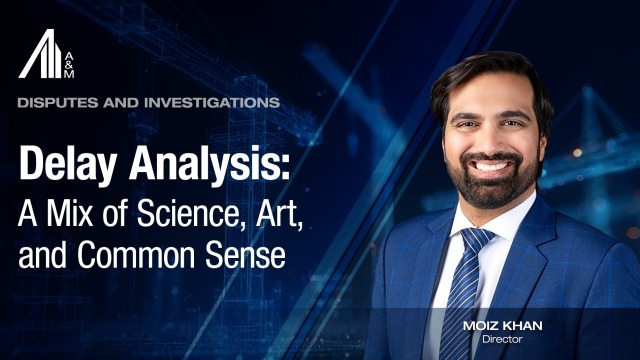US Corruption Crackdown Means Companies Must Actively Respond
Companies Should Take These Steps to Minimize Risk
In late 2021, for the first time, a U.S. President issued a comprehensive anti-corruption plan. By issuing the plan on White House letterhead and ordering so many federal agencies to participate, the President placed his personal brand at the heart of the battle against corruption.
The United States Strategy on Countering Corruption reflects President Joe Biden’s desire to make anti-corruption a core U.S. national security policy and could affect every company doing business with, or in, the U.S. The effect is likely to be far-reaching and companies should not underestimate its impact if the narrative (fairly simple) is combined with real action (historically difficult). Early behavior and tone from one of the U.S.’s main enforcement agencies, the United States Department of Justice (DOJ), suggests the initiative is serious.
The strategy aims to step up enforcement, improve collaboration between countries and government agencies, and provide new mechanisms to fight anti-corruption. The plan outlines five main corruption-fighting objectives:
- Modernizing and coordinating government efforts
- Curbing illicit finance
- Holding corrupt actors accountable
- Preserving and strengthening multilateral anti-corruption relationships with partners
- Improving diplomatic engagement and leveraging foreign assistance to advance policy goals
The administration's objectives are quite sensible. Some of the objectives are nothing new, but there are some interesting new threads and a new focus on the financial system itself. The strategy comes at a time when major banks have been severely fined after allegedly failing to detect and stop money laundering on their watch. Recently, former Federal Reserve Chairman and current Treasury Secretary Janet Yellen warned that the U.S. may be the global leader in money laundering. This could result in more self-regulation of U.S. banks and financial institutions, similar to the recent DOJ focus on off-shore locations and countries that have historically be known for significant private/secret banking activities, such as Switzerland, Luxembourg and Singapore.
What Are the Policy’s Implications?
While the strategy remains just a blueprint, it will ultimately lead to substantially more corruption-related investigations. Companies should proactively prepare how to respond to the most likely effects of the policy.
The bottom line: U.S. prosecutors are serious about the strategy and are actively looking to make an example of companies by handing out more fines and monitorships if prosecutors find evidence of corruption and related economic crime.
The U.S. government appears to be putting its money where its mouth is. The Biden administration wants to increase budgets of the Department of Justice, Security and Exchange Commission and the FBI and to employ more intelligence resources to fight corruption. The administration is also seeking to beef up legislation to leverage the success of the Foreign Corrupt Practices Act, which essentially cracks down on bribery and brings some transparency to accounting practices.
Going forward, expect increased focus on certain gatekeepers and intermediaries, including attorneys, financial advisors, and accountants, as well as certain industries, reflected in a potential rule that would curb money laundering in real estate transactions. The property and associated property investment sectors are clearly in the headlights. Vast sums of money have been invested in property, using all available means to avoid the ability to identify ultimate owners and linked entities.
Companies outside the U.S. will have to make a conscious decision whether it will align with the new anti-corruption strategy. Those that do not may face significantly greater exposure, especially as the number of investigations increase.
Prosecutors, globally aligned, will follow up more consistently on potential fraud, so companies should be prepared for regulatory scrutiny or bad news and shouldn’t be surprised when it comes. The chance companies will get caught will be higher. This is so for lots of reasons, including new whistleblower incentives in the United States and whistleblower protections in Europe and elsewhere, as well as vastly increased cooperation between law enforcement in various countries.
What Can Companies Do to Reduce Risk?
Proactive preparation in key areas will help organizations prepare for the increased scrutiny on the horizon — all while lessening the risk of asset misappropriation and bribery that can undermine employee engagement and divert ever-scarcer resources. The administration has already ramped up its investigative activity, so time spent now getting processes and procedures in order will pay off later.
We advise companies to consider the following actions:
Step up Due Diligence in M&A Activity
Now more than ever, it’s important to double down on proper and effective regulatory and controls-related due diligence on transactions, especially for companies targeting acquisitions/combinations/alliances and joint ventures in foreign jurisdictions. Without sufficient anti-corruption assessments, buyers can be exposed to huge fines and penalties, which may not appear until years down the line. The likelihood that a non-U.S. company will be tightly aligned to U.S.-style policies and accounting controls before being acquired is typically low, so it’s crucial to evaluate any acquisition, looking for traces of fraud, bribery, money laundering, and more.
Companies generally have six months after a deal to figure out whether there are any corruption-related issues with the target company. When there is a problem, companies should use that time to remediate the issue, and in so doing, eliminate or reduce regulatory exposure.
Such due diligence is just as important on the sell side of a deal. By cleaning up issues before a transaction, companies can avoid having their suitors walk away and limit associated reputational damage.
Develop Better Whistleblower Policies and Actions
Whistleblowers are constantly in the news, as frustrated workers expose fraud or other troubling behavior that their organizations seem to ignore. Companies cannot prevent whistleblowers from reporting to the government, but they can improve communications and enhance employee engagement. Companies should want to know the issue before it is all over social media.
Ideally, companies should acknowledge that whistleblowers are a real and valuable asset in the workplace and should encourage workers to go to their employer first to resolve any such issues. Working with whistleblowers is inherently tricky but showing that their concerns have been taken seriously — by conducting a thorough investigation where warranted — is the first step toward avoiding repeat issues.
In the European Union, a new directive requires most companies to adopt common minimum standards of protection for whistleblowers, including reporting mechanisms both within the companies or to the government. The directive may drive the need for external advisors to establish an effective plan for dealing with whistleblowers.
Prepare for New Regulations and Assess Risk
As the Biden administration continues to pressure regulators to go after bad actors, expect new legislation and regulations to deal with various aspects of corporate corruption. The intensification of scrutiny may also spur additional laws in countries outside the EU who do business with the United States.
New technologies will likely prompt some new laws as well. The continuing popularity of cryptocurrencies and mobile apps has attracted regulators’ attention, and for good reason. Drug traffickers have used these forms of currency or electronic transfers to launder profits, and terrorist groups have used them to finance activities.
Companies that deal with cryptocurrencies should analyze their blockchains, tracing transactions and identifying where illicit activities have either taken place or potentially could.
Break Down Corporate Compliance Silos
Companies often have several key stakeholders monitoring potential anti-corruption activity, as well as other economic crime risks (such as sanctions, tax evasion, modern day slavery, supply chain integrity, fraud). The problem: they’re not connected. One employee may cover bribery issues while others oversee money laundering or third-party risks.
Companies should connect the dots, bringing the relevant stakeholders together to work as a team because, in reality, problems in one domain may also involve another. And the solution, for example, a sophisticated third-party risk and monitoring team, must be deployed across all of these risk domains and transfer knowledge accordingly. Regulators are very focused on ensuring that companies respond to red flags and investigate. Information alignment and collaboration is therefore vital.
Enhance Technology to Improve Monitoring
Putting the right systems in place to identify unusual payments or bank transfers is a smarter way to monitor for illicit activity or raise red flags earlier in the process. Depending upon the organization, these systems can be sophisticated. But for many companies, enhancing the use of data analytics is sufficient to point investigators and other compliance personnel in the right direction.
By minding accounting controls, companies can investigate how and when someone circumvents protocols to put new protections in place. Where are the data trip wires in the system and who gets alerted when they’re breached? When do instances get escalated and to whom?
All the technology in the world won’t help if no one is minding the store. Companies must also reassess who receives and reviews the alerts and analytics.
Improve Internal Investigations
Investigation and documentation are key to mitigating risk in the event a company finds itself entangled in a potential scheme or form of corruption. Governments often show up years later looking for answers, and a careful set of documentation can clearly show how the problem was addressed and how a company remediated it.
Companies must ensure that they have a process in place to conduct investigations and that the right stakeholders are reviewing investigation results — always with an eye toward fixing the controls that someone managed to circumvent. Not acting properly on red flags is not an option.
In Summary: Expect Ever More Anti-Corruption Scrutiny, Be Prepared
As regulators respond to the administration’s policy, expect more money to flow to investigators, who, in turn, will launch more investigations. Other countries will more than likely partner with the U.S. as time goes by, increasing the odds that more companies will face penalties and fines for not rightly handling illicit activity under their watch.
In light of heightened regulatory rigor, companies should establish proper (which means effective) anti-corruption mechanisms to improve transparency, especially as environmental, governance and social (ESG) platforms become an ever more important initiative for corporate stakeholders. A company’s anti-corruption activities should match the messaging to investors, the public and other interested parties.
Checking boxes will no longer suffice. A full review of operational, technical, and accounting procedures, along with an investment in proactive, internally- focused investigative initiatives, will provide the best insurance against corruption risk.
Third-party, independent advisors can help companies remove blind spots and patch up breaches in processes that lead to problems. A&M offers an end-to-end solution to preparing for the growing regulatory environment and has substantial experience strengthening organizations’ ability to monitor and prevent illicit activity.



